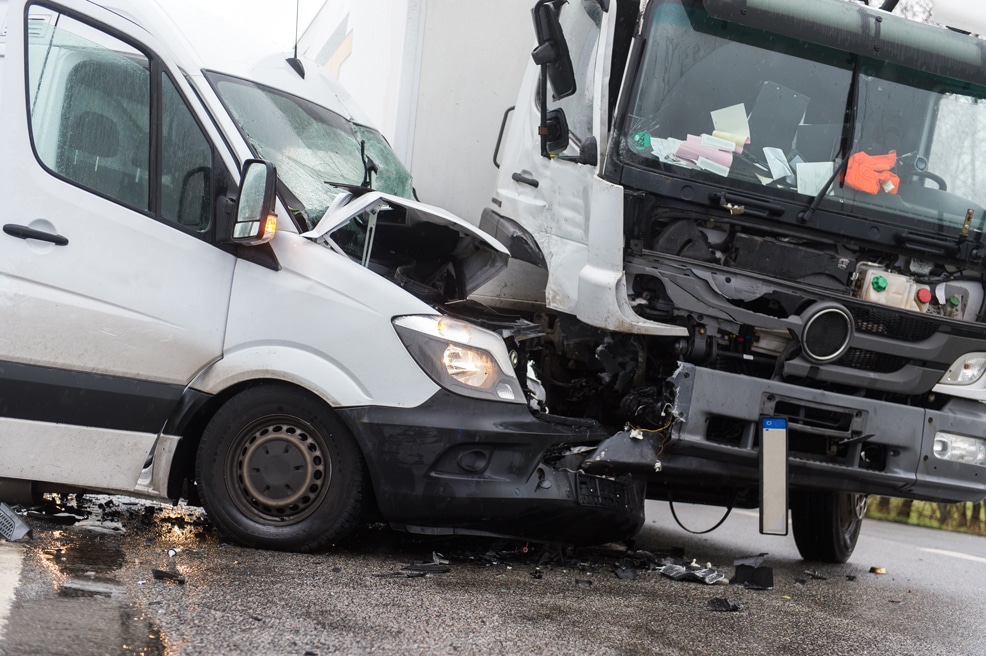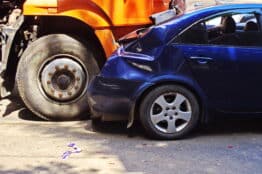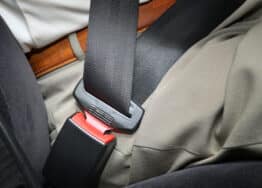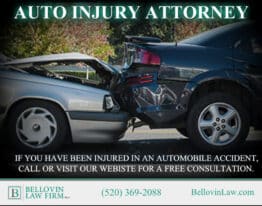
Interstate Trucking Accidents in Tucson, Arizona
Truck accidents on the interstate can be devastating, especially for passenger vehicle occupants. The sheer size and weight of large trucks pose a significant risk, often resulting in catastrophic outcomes. Factors such as truck driver fatigue and braking capability contribute to the frequency and severity of these accidents. Implementing measures like strong underride guards that can help mitigate the risks associated with trucking accidents. For those affected by trucking accidents in Tucson and throughout Arizona, understanding these dynamics, with the guidance of The Bellovin Law Firm, PLLC, is crucial for pursuing legal recourse and ensuring just compensation.
By the Numbers: Trucking Accidents in Tucson and Arizona
Large trucks play a significant role in transportation, covering extensive miles, especially on interstates. Despite representing a smaller proportion of registered vehicles, they account for a notable share of vehicle miles traveled. While fatal crashes involving large trucks occur, the rate per mile traveled is comparatively lower than that of passenger vehicles. However, the consequences can be dire, with thousands of fatalities annually, predominantly impacting passenger vehicle occupants. For individuals in Tucson and across Arizona, being aware of these statistics can underscore the importance of vigilance and caution when sharing the road with large trucks.
Trucking Regulations in Tucson and Arizona
Trucking regulations are essential for ensuring safety on the roads, both nationally and within Arizona. Federal and state authorities oversee various aspects of trucking operations, from equipment standards to driver licensing and hours of service. Compliance with these regulations is crucial, with interventions in place for carriers with poor safety records. Licensing standards for commercial drivers have been standardized since 1992, enhancing safety across state borders. Understanding these regulations can empower victims of trucking accidents in Tucson and Arizona to navigate the legal landscape effectively.
Fatigue and Hours of Service
Truck driver fatigue is a significant concern, as it increases the risk of accidents. Hours-of-service regulations aim to address this issue by limiting driving hours and mandating rest periods. Electronic logging devices have been instrumental in enforcing these regulations, minimizing the chances of falsified records. Prior to these rules, incidents of drivers falling asleep at the wheel were more prevalent, underscoring the importance of effective fatigue management. For those involved in trucking accidents in Tucson and Arizona, exploring potential violations of hours-of-service regulations can be crucial in establishing liability and seeking and receiving compensation.
Defective Equipment
Defective equipment is a contributing factor in many truck crashes, including those in Tucson and Arizona. Brake and steering defects, in particular, can significantly elevate crash risk. While improvements have been made in equipment standards, challenges persist in ensuring compliance and addressing existing defects. Post-crash inspections reveal alarming rates of mechanical violations, emphasizing the need for stringent enforcement and maintenance protocols. Victims of trucking accidents in Tucson and Arizona can leverage evidence of defective equipment to strengthen their legal claims and pursue accountability from negligent parties.
Braking Systems
Truck braking systems play a crucial role in preventing accidents, particularly in regions like Tucson and Arizona with diverse terrain and weather conditions. However, stopping distances for trucks are substantially longer than those for passenger vehicles, especially in adverse weather conditions. Maintenance of braking systems is paramount, with newer trucks equipped with advanced features like antilock brakes. These technologies not only improve braking efficiency but also reduce the likelihood of jackknifing and other control issues. Understanding the nuances of truck braking systems can be instrumental for victims of trucking accidents in Tucson and Arizona when assessing liability and pursuing legal action.
Crash Avoidance Technologies
Advancements in crash avoidance technologies hold promise for enhancing truck safety, benefiting communities in Tucson and across Arizona. Electronic stability control and other systems are designed to intervene during critical moments, reducing the risk of rollovers and loss of control. While adoption rates are slower compared to passenger vehicles, these technologies have demonstrated significant potential in preventing and mitigating crashes. Legislative efforts to mandate these technologies underscore their importance in improving road safety, particularly in regions prone to trucking accidents like Tucson and Arizona. Victims of such accidents can advocate for the implementation of these technologies and leverage their effectiveness in legal proceedings to secure fair compensation for their damages.
Truck Underride
Truck underride crashes pose a grave threat to passenger vehicle occupants, including those in Tucson and Arizona, often resulting in severe injuries or fatalities. Regulatory bodies and safety advocates, aim to strengthen rear-impact guards on trailers to minimize the risk of underride accidents. Despite regulatory enhancements, challenges remain in ensuring widespread compliance and addressing exemptions. Continued research and testing initiatives are vital for identifying and implementing effective underride prevention measures to safeguard motorists in Tucson, Arizona, and beyond. Victims of truck underride accidents in Tucson and Arizona can rely on The Bellovin Law Firm, PLLC, to hold responsible parties accountable for their negligence, thereby promoting safer roadways for all.









